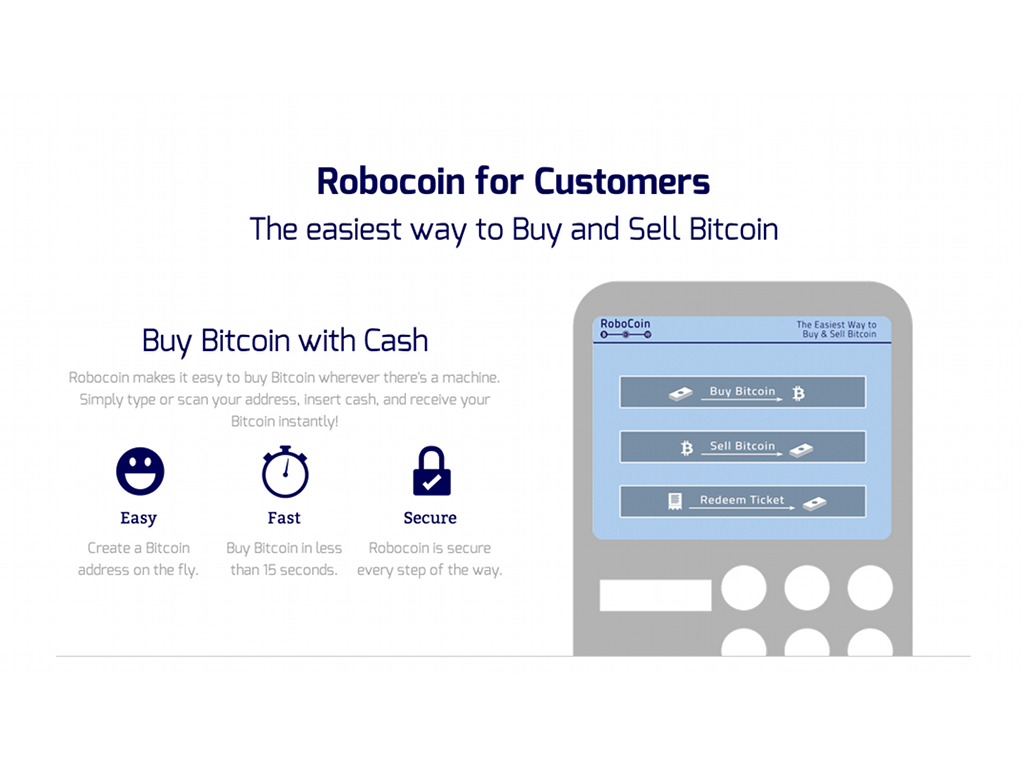
Robocoin bitcoin ATMs to be installed in Canada
Bitcoin ATMs are coming to Canada. A Vancouver-based operator plans to install five of them across the country by early December.
, a physical exchange for bitcoin that opened at the end of June, purchased the machines for $18,500 each from Las Vegas-based Robocoin. It plans to install the first unit in Vancouver at the start of next month, with four more rolling out in Montréal, Ottawa, Toronto, and Calgary by early December.
Bitcoiniacs started out as a physical bitcoin store, explains founder Mitchell Demeter, who began experimenting with bitcoin exchanges on LocalBitcoins.com.
Demeter, who has also operated digital signage shops, and a local moving company, hopes to install the ATM at a downtown branch of Vancouver-based coffee shop Waves that already accepts bitcoins. That deal hasn’t yet been finalized, however.
Demeter hopes to get roughly a 3% commission from the machines, which will exchange bitcoins for dollars, and vice versa. He is using an account on Calgary-based bitcoin exchange Virtex to support the service. Trades are sent via Robocoin’s servers, which checks that there are sufficient dollars or bitcoins in the account to complete the trade, converting from one to the other as necessary.
“Mt. Gox is having major liquidity issues, and we will stop supporting Mt. Gox and switch to others,” he said. The firm’s main problem is that there aren’t that many good exchanges out there, he complained. “As better exchanges come online, we will integrate.”
Demeter doesn't anticipate regulatory challenges with his service, asserting that the Canadian financial regulator, FINTRAC, is not yet targeting bitcoin. As an additional measure, he is limiting transactions to under $3,000. Beyond that limit, FINTRAC requires more extensive record keeping for regulated financial transactions.
Kelley says that there are four steps involved in making a transaction with the ATMs, designed to comply with the strictest KYC and AML rules. The ATM, which runs on Windows 7, takes a photograph of the user, and then scans their palm to analyze vein patterns. It then scans their ID, and asks them to sign up with their email address.
"We gather information and create a real-life profile of the person," Kelley says. The operator then verifies their identity manually in accordance with KYC requirements. "Confirmation will be very quick. It's in the operator's best interests to do this as quickly as possible."
While KYC confirmations might be quick, block chain confirmations will take the standard time. Users will get a receipt for their transaction, and they’ll redeem it after a single block chain confirmation. Presumably that ten minute average window will give them time to grab a cup of joe.
Robocoin, which announced at the end of August that it was taking preorders, says that it has received over 160 inquiries from countries including Kenya, Zimbabwe, Australia, Sweden, and Argentina. It says it is planning at least another 10-15 shipments in December.
The $18,500 cost per unit is only good until the end of this month, the company has said. After that, it will rise to $20,000.
, a competitor to Robocoin, began accepting pre-orders for its $5,000 bitcoin ATM in August.
DISCLOSURE
The leader in news and information on cryptocurrency, digital assets and the future of money, CoinDesk is a media outlet that strives for the highest journalistic standards and abides by a strict set of editorial policies. CoinDesk is an independent operating subsidiary of Digital Currency Group, which invests in cryptocurrencies and blockchain startups. As part of their compensation, certain CoinDesk employees, including editorial employees, may receive exposure to DCG equity in the form of stock appreciation rights, which vest over a multi-year period. CoinDesk journalists are not allowed to purchase stock outright in DCG.

